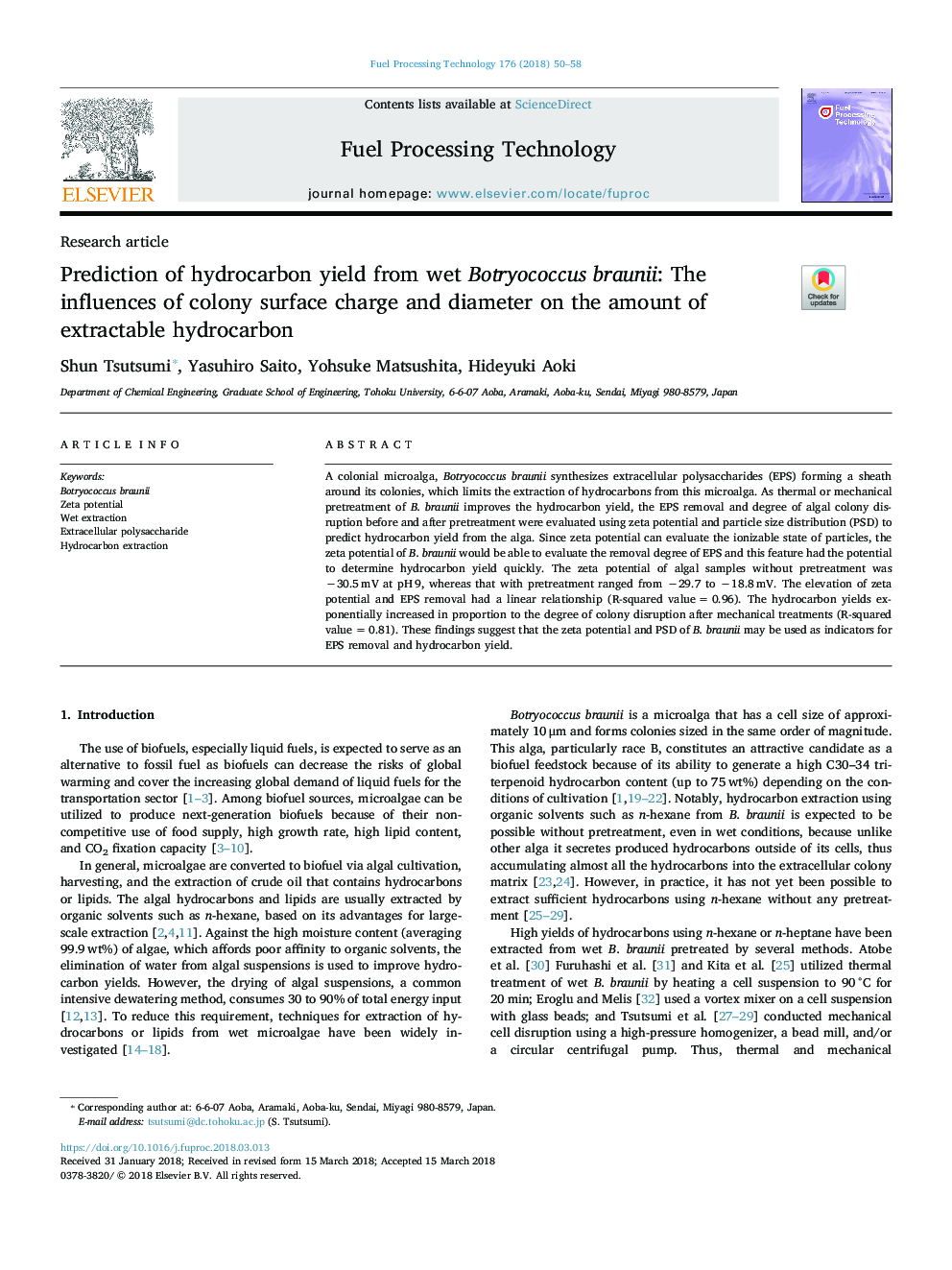| Article ID | Journal | Published Year | Pages | File Type |
|---|---|---|---|---|
| 6656352 | Fuel Processing Technology | 2018 | 9 Pages |
Abstract
A colonial microalga, Botryococcus braunii synthesizes extracellular polysaccharides (EPS) forming a sheath around its colonies, which limits the extraction of hydrocarbons from this microalga. As thermal or mechanical pretreatment of B. braunii improves the hydrocarbon yield, the EPS removal and degree of algal colony disruption before and after pretreatment were evaluated using zeta potential and particle size distribution (PSD) to predict hydrocarbon yield from the alga. Since zeta potential can evaluate the ionizable state of particles, the zeta potential of B. braunii would be able to evaluate the removal degree of EPS and this feature had the potential to determine hydrocarbon yield quickly. The zeta potential of algal samples without pretreatment was â30.5â¯mV at pHâ¯9, whereas that with pretreatment ranged from â29.7 to â18.8â¯mV. The elevation of zeta potential and EPS removal had a linear relationship (R-squared valueâ¯=â¯0.96). The hydrocarbon yields exponentially increased in proportion to the degree of colony disruption after mechanical treatments (R-squared valueâ¯=â¯0.81). These findings suggest that the zeta potential and PSD of B. braunii may be used as indicators for EPS removal and hydrocarbon yield.
Keywords
Related Topics
Physical Sciences and Engineering
Chemical Engineering
Chemical Engineering (General)
Authors
Shun Tsutsumi, Yasuhiro Saito, Yohsuke Matsushita, Hideyuki Aoki,
